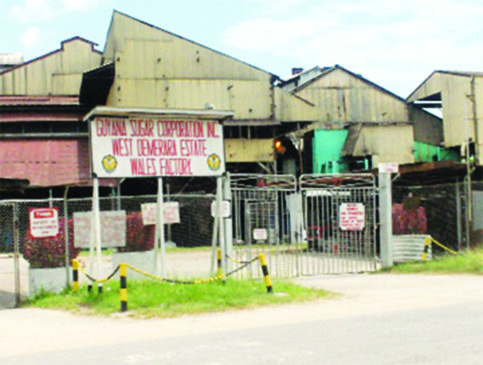…children forced to find odd jobs to support schooling

Ever since the Wales Sugar Estate closed – leaving thousands of workers without jobs, many of their children are now forced to find odd jobs around the community to offset expenses for their schooling.
During a visit to the village last Saturday, parents who were sent home from the sugar industry indicated that it was very difficult to send their children to school, owing to transportation expenses and other supplementary spending for textbooks and studying materials.
One parent, who gave her name as Urmila, stated that since her husband was dismissed, her 14-year-old son has been working in the afternoon to earn some extra money.
“When he come home from school, he does do some extra work round here, and then Saturday and Sunday, he does find a lil’ work to do – mason or anything that he could manage. Right now, he father does only work sometimes ‘cause not every time people does get work. He used to go over at Uitvlugt a couple morning but then they tell him that they don’t have anything,” she indicated.
Meanwhile, a few houses away, an elderly man named Chotoo (only name) told Guyana Times International that his son was retrenched and he has been supporting his grandson’s schooling.
“He got to travel to go to school in Canal Number Two. He got to pay about G$300 a day travelling plus little money for a snack, so if it wasn’t for me, he would have got to drop out from school,” the elderly man relayed.
Meanwhile, other young teenagers have resorted to selling ‘bird seeds’ and produce from their families’ kitchen gardens to offset educational expenses.
Thousands of dismissed sugar workers are finding great difficulty in securing alternative jobs following their retrenchment. In early November of 2018, the National Assembly gave approval for almost G$2.5 billion to cater for the remaining severance to 4723 sugar workers, and Justice Fidela Corbin-Lincoln had also ruled in favour of the ex-employees, saying that they should be paid with interest in the range of four to six per cent.
It took the court over a year to initially hear the Wales severance matter after the workers, their families, union and other supporters were protesting for their legally-entitled benefits.
Aside from Wales Estate closing in December 2017, the closures of Skeldon, Rose Hall and Enmore were all finalised as part of Government’s cost-cutting measures. The latter three were later reopened under small operations as part of the Administration’s move to attract private investors.
In recent times, hundreds of acres at Wales were leased to a company for coconut cultivation and processing despite Government’s promises of opening up the land to the retrenched workers for farming.
Only on Saturday, most of the sacked workers related that they were still struggling to find jobs, awaiting the promise that they would be granted the plantation lands as assured.
Some said that they were disappointed and dismissed the possibility that they would ever get land after hearing that a large portion was already “given away”.
In 2017, the workers were promised by the A Partnership for National Unity/Alliance For Change (APNU/AFC) coalition Government that lands from the Estate would be given to them to engage in farming and other agricultural activities to earn a living.
Two years later, these lands have not been distributed to the former sugar workers and hundreds of acres have now been leased to private persons, including recently, 700 acres for coconut cultivation and processing.
The Wales Estate on the West Bank of Demerara was one of four – Enmore Estate in Demerara, and Rose Hall and Skeldon in Berbice— which were closed under the current Administration, leaving thousands jobless.



